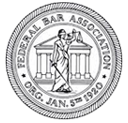- Joslyn Law Firm
- What Happens After a DUI Arrest
- Defenses to DUI Charges
- (513) 399-6289 to begin building a strong defense in your case. " href="https://www.duidefenseohio.com/post-arrest/defenses-to-charges/unlawful-stops/">Unlawful Stops


Unlawful Stops
Law enforcement officials have certain protocol they must follow when stopping a driver on the roadway. These requirements and procedures are especially important when a stop leads to an arrest. When a driver is arrested for driving under the influence, it is crucial to know if the stop that led to the criminal charges was lawful. An unlawful stop could be a strong defense to your DUI charges.
Cincinnati DUI Unlawful Stop Defense Lawyer
If you have been charged with a DUI, it is important you examine all of the factors of your case. An experienced and educated Cincinnati DUI attorney at Joslyn Law Firm can help you determine if your charges are the result of an unlawful and improper stop. This is critical when fighting the charges and working to protect your freedom.
Officers sometimes can overreach and assume there is reasonable suspicion to stop a driver or probable cause to make an arrest. A DUI defense attorney at Joslyn Law Firm in Cincinnati can investigate and analyze the legality of the stop. This could lead to having the charges reduced or even dropped.
Joslyn Law Firm represents clients throughout the counties of Hamilton, Franklin, Clermont, Butler and Clinton. This includes the communities of Hamilton, Middletown, Norwood, Fairfield, Butler, Mason, Oxford and other nearby areas. Contact Joslyn Law Firm at (513) 399-6289 to schedule a free consultation.
Information About Unlawful Stops
- Reasonable Suspicion in DUI Cases
- What is Probable Cause for DUI Stops?
- Checkpoints for DUI Offenses
Reasonable Suspicion in DUI Cases
In Ohio, there are six primary causes to stop a vehicle, including reasonable suspicion, according to the Ohio Department of Public Safety. A law enforcement officer can stop a driver if he or she has reasonable suspicion based on specific, articulable facts that criminal activity has been or is occurring.
Reasonable suspicion requires the officer to show specific facts that warrant a stop. Three categories of cues for reasonable suspicion include visual detection of impaired motorists cues, post stop cues and motorcycle impaired driving detection cues.
According to the National Highway Safety Association, examples of driving cues that could give law enforcement reasonable suspicion for a DUI stop include:
- Problems maintaining proper lane position, such as swerving
- Speeding and braking problems
- Accelerating for no reason
- Driving without headlights at night
- Slow response to traffic signals
- Failure to signal a turn or lane change
- Improper or unsafe lane change
- Following too closely
- Illegal or improper turn
Reasonable suspicion could be established in other ways, including anonymous tips. If a law enforcement officer receives an anonymous tip about a driver, the officer must consider whether the tip was made based on personal observation and whether it was made contemporaneously with the criminal activity.
Additionally, a police officer could establish reasonable suspicion after making a traffic stop. For instance, if an officer stops a driver for a broken head light, but then notices the driver seems intoxicated, an officer legally could investigate to determine if the driver is in fact impaired.
Reasonable suspicion allows an officer to temporarily stop and detain a motorist. This allows the officer to investigate further if he or she thinks the motorist may have committed a crime. However, law enforcement officials in Ohio must meet the higher standard of probable cause before making an arrest.
What is Probable Cause for DUI Stops?
Probable cause is different from reasonable suspicion in that it is a higher standard. This means reasonable suspicion could lead to a stop, but the officer must have evidence to suggest a crime was committed before an arrest can legally be made.
For DUI or OVI stops, an officer could have probable cause for an arrest after administering a field sobriety test or a breath test. For instance, if an officer stops a driver after he or she turned illegally, suspected he or she was under the influence and administered a breath test with a 0.09 BAC result, the officer could have probable cause for an arrest.
According to the Ohio Department of Public Safety, factors after a traffic stop that could be considered probable cause to arrest include:
- The intensity of the alcohol odor as described by the officer
- The suspect's demeanor, such as being belligerent or uncooperative
- Any actions by the suspect after the stop that might indicate a lack of coordination, including dropping keys or falling over
- The suspect's admission of alcohol consumption, the number of drinks had and the amount of time in which they were consumed
No single factor is a clear determination for being considered under the influence. All of these factors, combined with the officer's previous experience with drivers under the influence, would be taken into account when determining if the officer acted reasonably in making an arrest.
Checkpoints for DUI Offenses
Although they often are controversial, the United States Supreme Court ruled in Michigan Dept. of State Police, et al., v. Sitz. DUI checkpoints are considered constitutional. The court used the following factors in determining the validity of checkpoints:
- The state's grave and legitimate interest in curbing drunk driving
- The fact that checkpoints are generally effective
- The subjective intrusion on individual liberties was not substantial
The Ohio Supreme Court agreed with this ruling in another case. This means law enforcement officials in Ohio can schedule checkpoints on busy holidays in populated areas and produce valid DUI arrests. However, there still are requirements for the checkpoints.
Checkpoint locations must be safe and visible to all oncoming motorists, according to the Ohio Department of Public Safety. The location also must have an area where vehicles can be diverted without causing a safety issue or causing traffic to backup, in addition to being marked with adequate warning signals, lights, signs or flashers.
Additional checkpoint requirements in Ohio include:
- A notice sent to local media
- Uniformed officers and official vehicles with visibility to show police power in the community
- A predetermined location, time and established procedures for stopping vehicles
Law enforcement officers at the checkpoint must follow the standards and procedures determined by policy-making administrative officers, such as planning to stop every other vehicle. If there are deviations, there must be neutral and rational basis for doing so. Also, all of those present and working the checkpoint must be informed of the procedures.
Finding the Best Hamilton County Unlawful Stop DUI Attorney
If you are facing DUI charges and think your stop was unlawful, contact a Cincinnati DUI defense lawyer at Joslyn Law Firm. Our attorneys are dedicated to helping clients get a favorable outcome in their case. They will use their knowledge and experience to make sure your rights are represented. Call (513) 399-6289 to schedule a free consultation.























